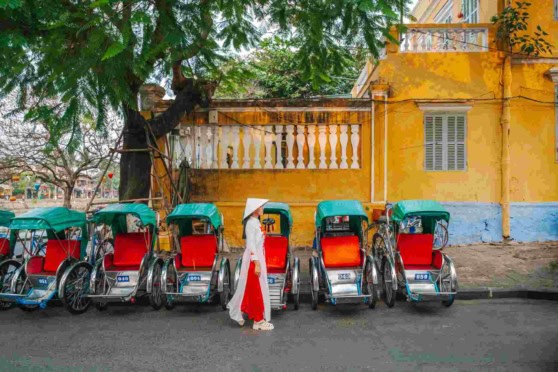Digital Nomad Tips: A Guide to Working While Traveling in 2026
Discover essential digital nomad tips to thrive while working remotely, including managing time zones, staying healthy, protecting your devices, and making friends abroad.

International medical cover for expats and their families.
Medical and trip cancellation coverage for international travel.
Life insurance for globally mobile individuals living or working abroad.
Comprehensive international medical coverage for groups.
Medical, accident, and liability protection for global travel.
Financial protection for employees worldwide.
Most Popular Country Guides
Healthcare, insurance, and living insights to plan life and travel in each destination.
Healthcare, safety, and practical guidance for living abroad.
Tips and guidance for safer, smarter international travel.
Resources for global mobility, HR, and international teams.
Discover the best countries for digital nomads in 2026, learn how to apply for a visa, and get expert tips on choosing the ideal destination.


The rise of remote work has transformed where and how people live, opening up endless possibilities for professionals seeking flexibility and adventure. In 2026, more countries than ever are offering digital nomad visas, providing remote workers with the opportunity to combine work, travel, and new experiences abroad.
If you’re dreaming of taking your work on the road, this article highlights the best countries for digital nomads, how to apply for a visa, and offers tips for choosing the perfect destination based on living costs, internet speed, visa options, lifestyle, and safety.

A digital nomad is an individual who works remotely while traveling or residing in various locations.
They rely on digital tools and internet connectivity to perform their jobs from anywhere in the world, whether it’s a café, a coworking space, a hotel, or even the beach.
The term was first coined by Tsugio Makimoto and David Manners in 1997, and the concept has steadily grown in popularity ever since.
The COVID-19 pandemic further accelerated the shift toward remote work, demonstrating that location-independent careers are not only possible but increasingly common.
In fact, as of 2026, the global digital nomad community has surpassed 40 million individuals and is projected to exceed 65 million by 2030.
Approximately 18.1 million reside in the United States, marking a 147% increase since 2019. Most of them are between 30 and 39 years old, and 56% are male.
Embracing the digital nomad lifestyle comes with a range of exciting advantages. First and foremost is freedom and flexibility.
You can work from anywhere in the world and set your own schedule, escaping the constraints of a traditional 9-to-5 job.
Beyond work, being a nomad opens the door to travel and cultural experiences. You can explore new countries, learn languages, and immerse yourself in local customs and traditions.
Many remote workers also enjoy cost optimization, choosing destinations where their money stretches further while maintaining a high quality of life.

The lifestyle also fosters opportunities for networking and building communities. Digital nomad hubs around the world bring together remote workers, entrepreneurs, and locals, creating vibrant spaces where they can meet, collaborate, and share ideas.
Along the way, you’ll experience significant personal growth, learning to adapt to new environments, solve challenges independently, and develop skills that go beyond your job.
Ultimately, the remote work lifestyle can enhance your work-life balance, enabling you to prioritize wellness, hobbies, and memorable experiences alongside your career.
Becoming a digital nomad often starts with finding a job that allows you to work remotely.
Begin by taking stock of your skills and exploring ways to earn money online. If needed, consider taking courses to expand your skill set. Many digital nomads work in IT or creative industries, while training, sales, and marketing are also popular paths.
If you’re already employed, it might be worth asking your company about transitioning to full-time remote work. Some companies still have restrictions due to taxes or time zones, but these are gradually being lifted.
Alternatively, look for jobs that mention “distributed teams” or “asynchronous communication,” or consider freelancing or starting your own online business.
Once you have a plan for earning, think about the logistics of working remotely. Building a portable workspace and having the right digital tools can make life on the move much easier.
You might also want to plan how you’ll manage your finances, and consulting an accountant experienced with global tax matters can make the process much smoother.
Above all, it’s important to stay flexible and informed. This means staying up to date with visa requirements, travel advisories, and any changes that could affect your nomadic lifestyle.
Once you’ve figured out how to earn a living and manage life on the move, the next step is ensuring you can legally stay in your chosen destination.
While short-term tourist visas work for brief trips, they aren’t designed for long-term remote work. That’s where digital nomad visas come in.
Offered by dozens of countries worldwide, these special permits allow you to live abroad for extended periods – often six months to several years – while working remotely for a foreign employer or your own business.
They provide peace of mind by giving remote workers a clear, legal path to live and work overseas.
Applying for a digital nomad visa may seem daunting, but most countries require similar documents and follow a straightforward process.
Common requirements include:

Choose the Right Insurance for Your Stay: Digital nomads can select travel medical insurance or international health insurance tailored to their specific needs and the duration of their stay. Travel medical plans cover urgent care and emergencies for short-term stays (typically up to 12 months). In contrast, international health plans provide comprehensive coverage, including routine checkups, elective procedures, and prescriptions, for longer stays (three months or more). Read more about digital nomad insurance.
Most applications can be completed online, though some countries may require an in-person visit to an embassy or consulate.
In many cases, you’ll also need to attend an interview and wait a few weeks before approval.
With the basics covered, the next step is identifying which countries offer the best opportunities for remote workers.
With more than 60 countries now offering digital nomad visas in 2026, choosing the right destination can feel overwhelming.
Fortunately, the Global Digital Nomad Report 2025 highlights the best countries for remote work. It ranks 64 nations based on visa accessibility, cost of living, quality of life, technology infrastructure, and more.
According to the findings, the top destinations for digital nomad visas are:
Rank | Country |
#1 | Spain |
#2 | Netherlands |
#3 | Uruguay |
#4 | Canada |
#5 | Czechia |
#6 | Portugal |
#7 | France |
#8 | UAE |
#9 | Germany |
#10 | Malta |
#11 | Ecuador |
#12 | Greece |
#13 | Romania |
#14 | Taiwan |
#15 | Brazil |
#16 | Hungary |
#17 | Malaysia |
#18 | Seychelles |
#19 | Panama |
#20 | Costa Rica |
These countries have proven to be the most accommodating for international remote workers, offering a mix of visa accessibility, affordability, lifestyle, and strong digital infrastructure.
However, when choosing a destination, aspiring digital nomads should consider not just the visa itself but also local living costs, internet quality, safety, and lifestyle factors.

Meet Visa and Destination Insurance Rules. Make sure your insurance policy meets both destination and visa requirements. Some countries mandate coverage for medical evacuation, COVID-19, or other regional risks, and many digital nomad visas require proof of health or travel insurance.
Selecting one of the best countries for remote workers involves more than just picturesque landscapes. It’s about finding a place that aligns with your work needs, lifestyle preferences, and long-term goals.
Here are some factors to consider when making your decision.
Fast and reliable internet is non-negotiable for remote workers. Whether you’re coding, designing, or managing projects, uninterrupted connectivity is essential for staying productive anywhere in the world.

According to the 2025 Speedtest Global Index, the top 10 countries for fixed broadband speeds are:
Of these countries, France, the UAE, Iceland, and South Korea also offer digital nomad visas for longer stays.
While these rankings highlight the fastest countries, many urban areas worldwide provide strong internet connections.
When booking accommodation, it’s wise to check local speeds and, if possible, request a screenshot of a Mbps test to be sure.
A common misconception is that only high earners can afford the digital nomad lifestyle.
However, while traveling and exploring new countries does come with costs, you don’t need a high-paying job to live a location-independent lifestyle.
Many remote workers plan their travels around daily expenses, such as rent, utilities, and food, which significantly influence their destination choices.
According to the 2025 InterNations Expat Insider Survey, the 10 most affordable countries are:
Of these countries, Colombia, Panama, Thailand, Indonesia, the Philippines, Mexico, Malaysia, and Brazil offer digital nomad visas.
These destinations combine low living costs with vibrant communities, making them ideal for remote workers who want to stretch their budgets while enjoying new experiences.

Safety is naturally a top priority when choosing a remote work destination.
According to the 2025 Global Peace Index, the safest countries for remote work and travel are:
Of these countries, Iceland, Ireland, and Portugal offer digital nomad visas.
These nations consistently rank high due to low crime rates, political stability, and effective governance. They also provide strong infrastructure, quality healthcare, and welcoming environments for expats.
Beyond general safety, expats should also consider social and cultural factors that affect daily life.
Local customs, LGBTQ+ inclusivity, and regional variations can influence your comfort and well-being.
For instance, popular remote work destinations such as Iceland, Uruguay, Spain, and Malta rank among the top 10 most LGBT-friendly countries in the 2025 Equaldex LGBT Equality Index, offering strong legal protections and social acceptance.

By contrast, some nations may still hold conservative attitudes toward LGBTQ+ individuals, making it important to research social climates before moving.
General safety can also vary within countries, so investigating specific neighborhoods can help identify areas with lower crime rates and more expat-friendly communities.
By considering these expat-specific factors alongside broader safety metrics, you can choose a destination that provides security, inclusivity, social comfort, and a welcoming environment for your remote work lifestyle.
The digital nomad lifestyle offers freedom and adventure, but it also comes with its share of risks.
From unpredictable weather and adventurous activities to travel mishaps and health emergencies, being on the move means you need a safety net.
Having the right insurance ensures you can focus on exploring the world without worrying about unexpected costs.
Whether it’s travel medical coverage, trip cancellation protection, or a long-term international health plan, the right policy keeps you covered wherever your journey takes you.
Read more about digital nomad insurance and find a plan that gives you peace of mind while you work and travel.
